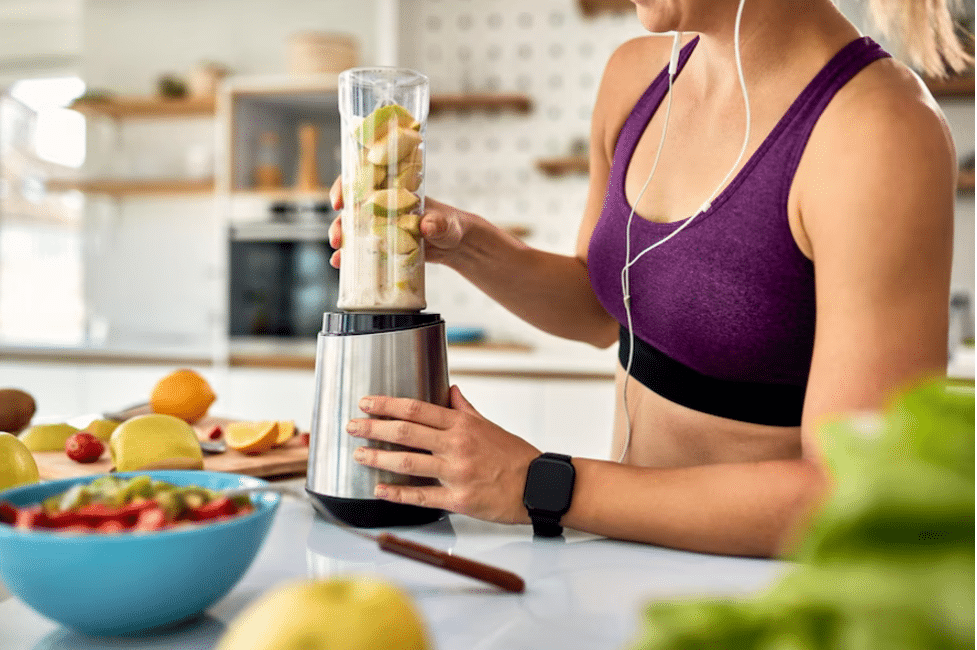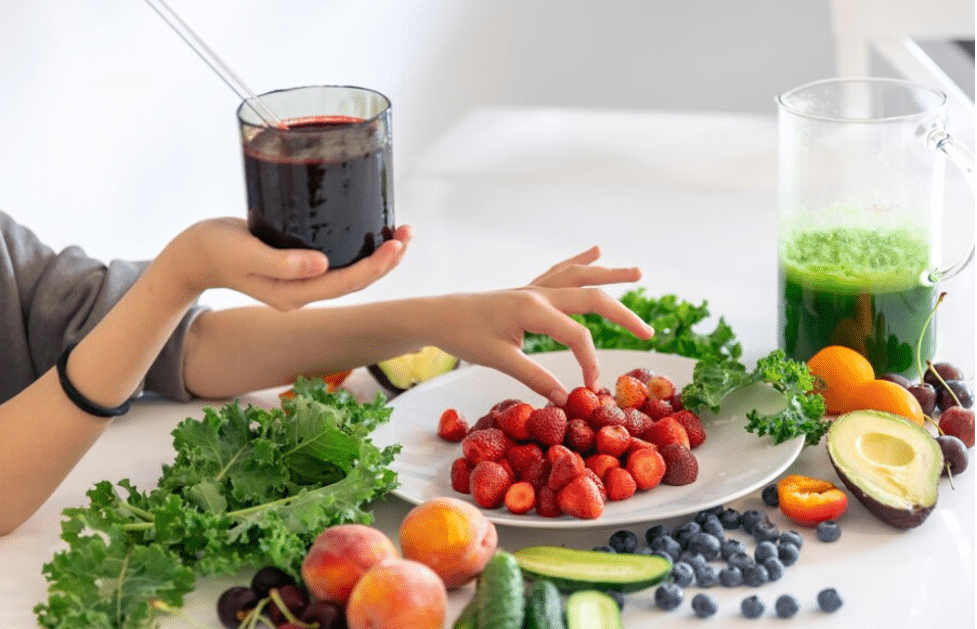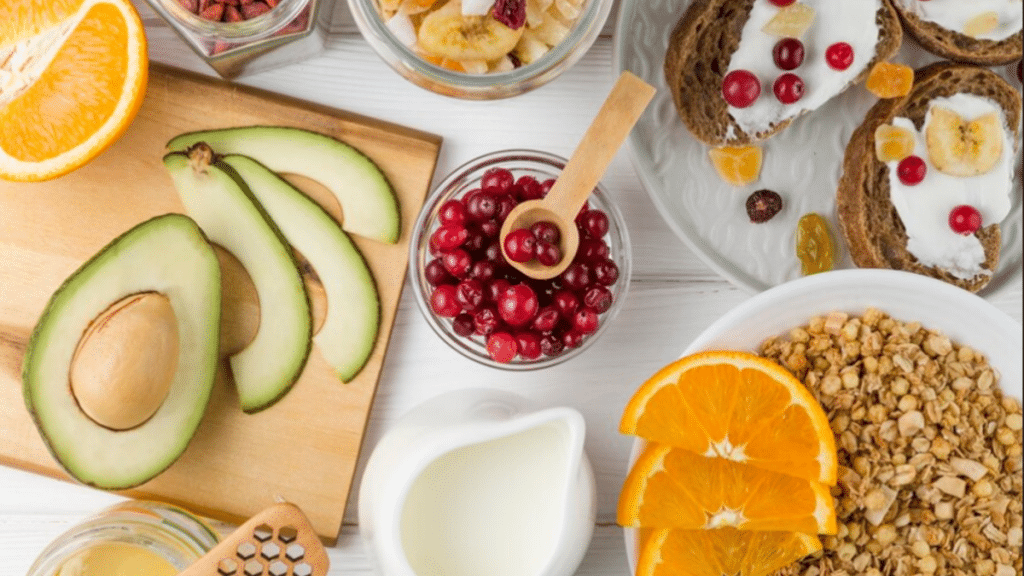Superfoods have become popular in the world of fitness and sports. They help improve performance, recovery time after exercising, and overall health. We answer the most commonly asked questions about the best superfoods for athletes so you can understand why they are so important
What are superfoods for athletes?
What exactly do you mean by superfoods for athletes? Well, these foods pack a lot of nutrients into a small amount of food and are described as such. They should also be rich in vitamins, minerals antioxidants, and other healthful substances. Athletes need them because it gives an overall enhancement in performance levels thus affecting recovery processes too; this can’t be overlooked especially by people involved in sports activities. Most of them come from fruits, vegetables nuts seeds, and whole grains usually offering additional benefits besides just providing nourishment but we will discuss a few examples below this line.
Why are superfoods important for athletic performance?
Superfoods in athletes are required to enable them to attain or maintain optimal health and performance. Research has shown that the antioxidants in superfoods reduce the expected oxidative stress in exercise. This way, superfoods become very significant in an athlete’s diet in ensuring that the finest nutrients are contributed to the body for excellent performance.
How do superfoods benefit athletes?
Superfoods have several benefits to athletes, such as providing more energy, faster recovery, and overall better health. Various nutrients found in superfoods help to balance the diet and offer the body fuel that is necessary for both execution and recovery. For example, quinoa, through its complex carbohydrates, gives the body a powerhouse to last long, while avocados contain good fats to help the brain function and produce hormones. Anti-inflammatory foods such as turmeric counter soreness in muscles and reduce joint inflammation.
Can superfoods improve recovery time for athletes?
Other superfoods that contain antioxidants are berries and green tea, which assist in reducing inflammation and muscular damage following intense exercise. Food proteins such as Greek yogurt and other lean meats are preferable for advanced muscle repair or growth. Omega 3 fatty acids are also a significant emphasis to increase the rate of inflammation and quick recovery, found in rich foods like salmon and flaxseeds. These will help the athletes to recover and be back training in less time in a post-workout meal.
What are the top superfoods for athletes?
Several superfoods top the list of those that offer incredible benefits to athletes. Some of the best include:
- Blueberries: They contain high levels of antioxidants, helping to reduce oxidative stress and inflammation.
- Spinach: High in iron and nitrates, which can increase endurance and muscle efficiency.
- Chia: It is high in omega-3 and full of soluble fiber, both of which boost your energy for good recovery.
- Quinoa: Quinoa is a source of complete proteins hosting essential amino acids for great power.
- Salmon: Salmon supplies your body with omega-3s that may deter inflammation and encourage better heart health.
- Sweet Potatoes: Sweet potatoes are comprised of complex carbohydrates and vitamins for long-lasting energy.
- Greek Yogurt: Here you get an excellent source of protein and probiotics; very effective for muscle recovery and gut health.
- Almonds: Full of good fats and Vitamin E, which is good for overall health and recovery.
- Beets: Contains nitrates to help blood flow and endurance.
- Turmeric: Unquestionably the most popular anti-inflammatory food on the planet, helping to reduce muscle soreness.

Are superfoods better than regular foods for athletes?
The superfoods, as noted, come with concentrated nutrients and some health benefits, but these are not at the expense of a complete diet. All the same, essential nutrients that require provision for normal body functions are found in ordinary foods. The secret, therefore, lies in the consistent use of superfoods in all-rounded diets representative of all the food groups. In this way, athletes and contestants will likely receive a broad spectrum of nutrients that are significant to their sporting activity and general body function.
How often should athletes consume superfoods?
This would hence carry a frequency of intake of superfoods relative to the dietary needs and his training schedules. An athlete needs to include in his diet a diversity of superfoods every day. For example, taking berries during breakfast, spinach for salads, and chia seeds for smoothies would help spread such nutrient-dense foods throughout the day. This means that superfood is consumed regularly, and the benefits are consistent for the athlete about the nutrients that the properties of the foods contain.
Can superfoods prevent injuries in athletes?
By themselves superfoods don’t prevent injuries but they can help make a person healthier which reduces the likelihood of getting hurt. This is essential since it supplies nutrients such as calcium from leafy greens or dairy products and vitamin D that are needed for strong bones and muscles. In addition to this, foods that are rich in antioxidants together with their anti-inflammatory parts like berries or turmeric will keep joints healthy by reducing inflammation hence cutting down on overuse injury risks. Proper training should be done while taking super food full diets rests are also among the strategies that people can use to ensure the level of susceptibility is lowered.
Do superfoods enhance endurance for athletes?
This is how superfoods boost your endurance; they’re responsible for energizing an athlete and encouraging his muscles to breathe oxygen properly. One of the best examples is the nitrate in beetroots, which somehow boosts long-lasting endurance because of its beneficial blood flow and muscle efficiency. Sweet potatoes and quinoa depict complex carbohydrates, which give essential and long-lasting endurance. Conversely, some superfoods support anti-inflammatory benefits by reducing fatigue and sore muscles, which would otherwise hinder ongoing training; the athlete can work out more frequently and with higher intensity.

How do superfoods affect muscle growth?
Superfoods support muscle development through the repair and synthesis of nutrients. Good sources of amino acids needed to develop and maintain muscle tissue are found in high-protein superfoods like Greek yogurt, quinoa, and lean meats. Omega-3s are anti-inflammatory and help recover muscles in salmon and chia seeds. Antioxidants present in the berries and green tea reduce oxidative stress, which probably may impede muscle growth. Super-foods should be added to the diet for balance, for it allows the addition of muscle and general performance during physical activity. Super-foods are very good for runners in that they help improve performance and recovery and ensure health with minimal chances of getting injuries. These nutrient-dense foods can supercharge one’s training and bring out top fitness in athletes.
